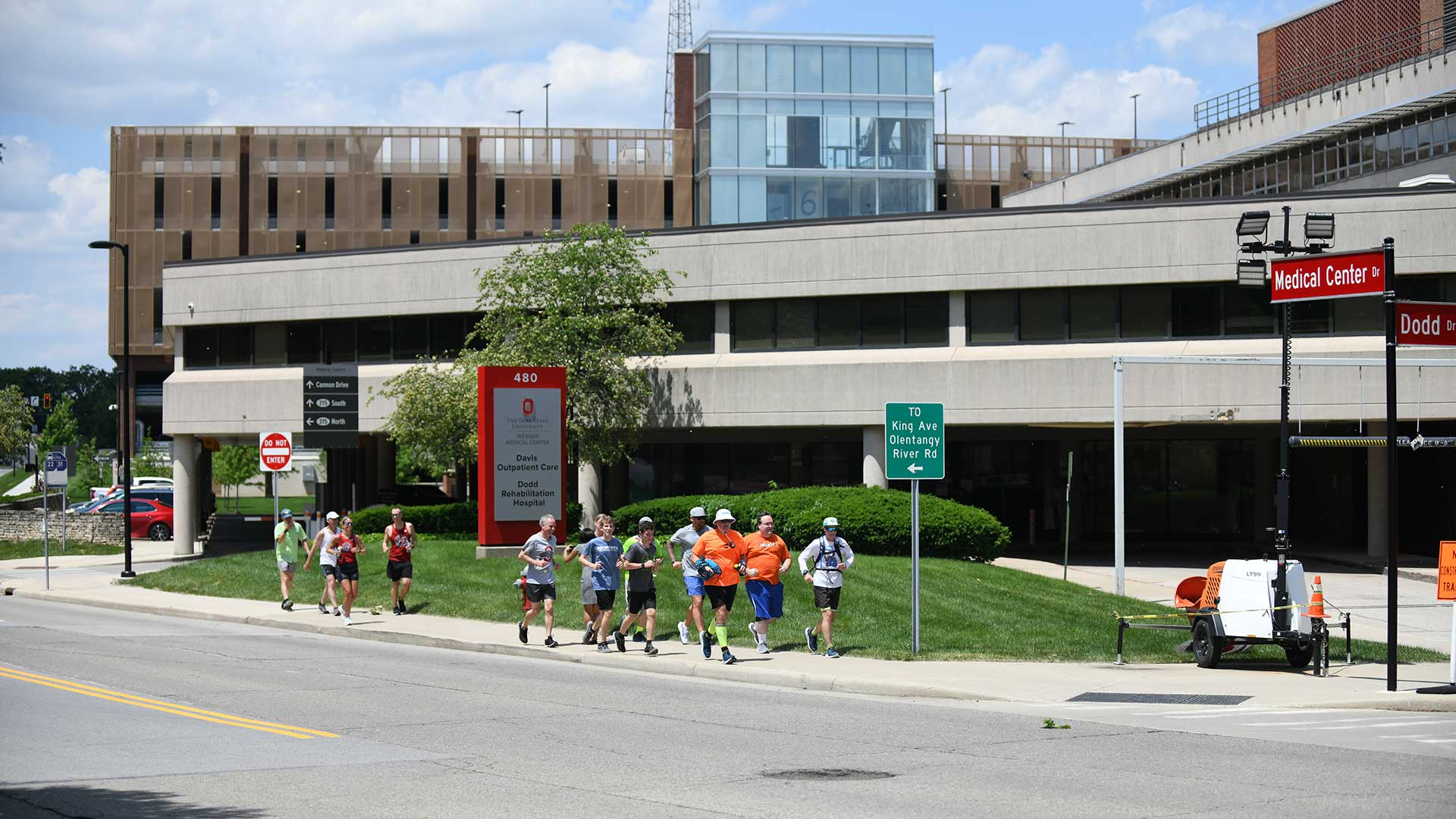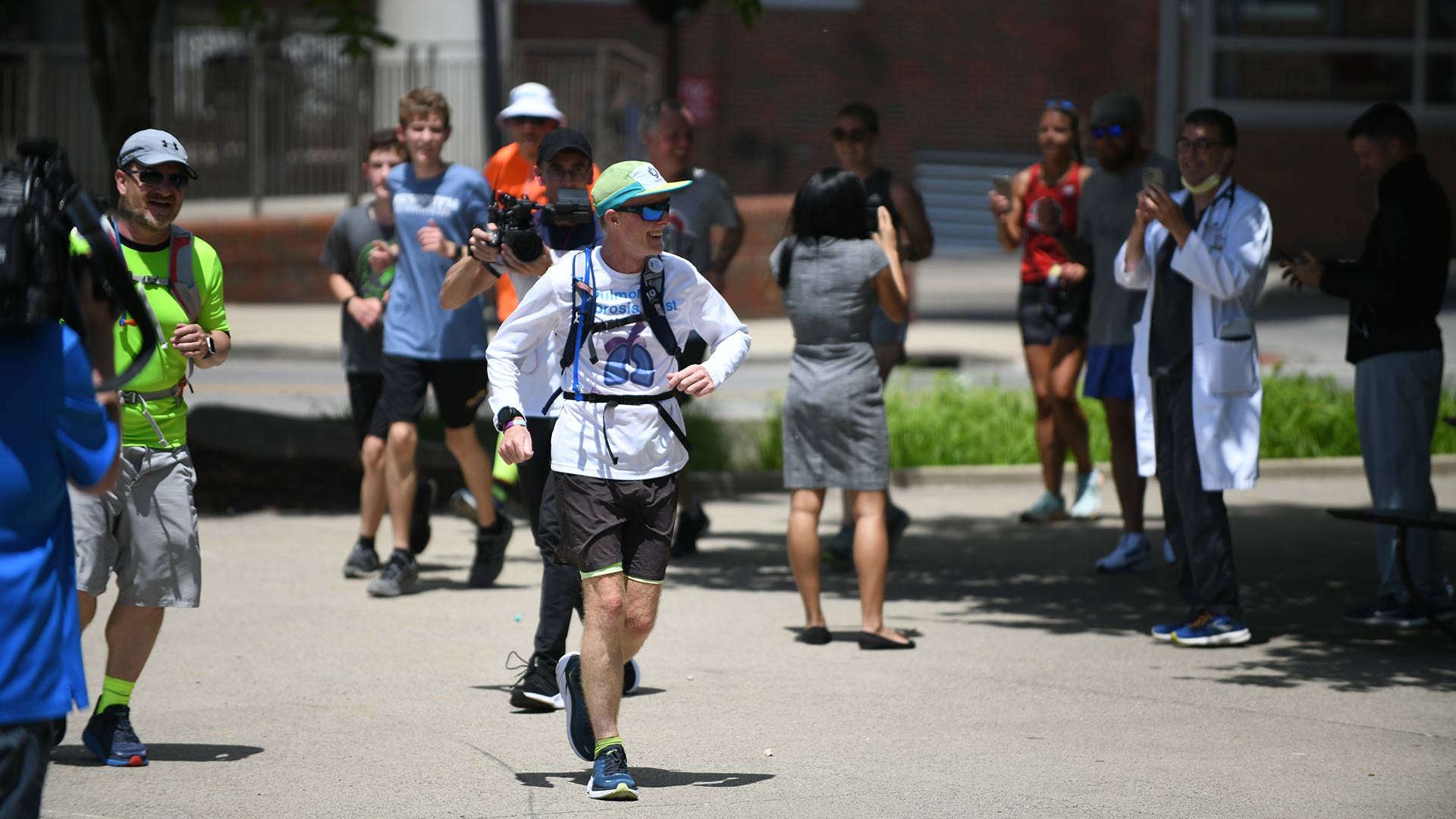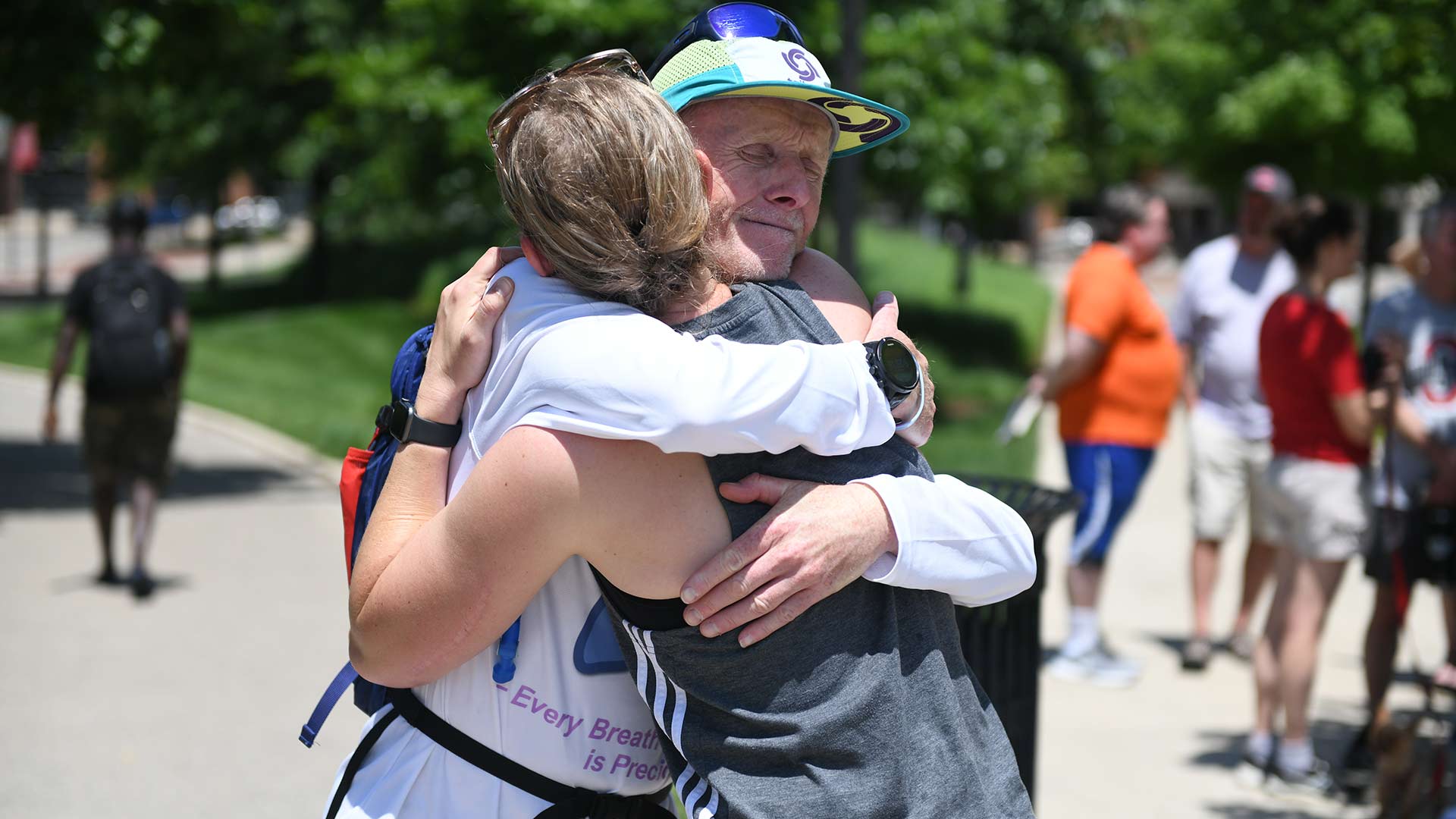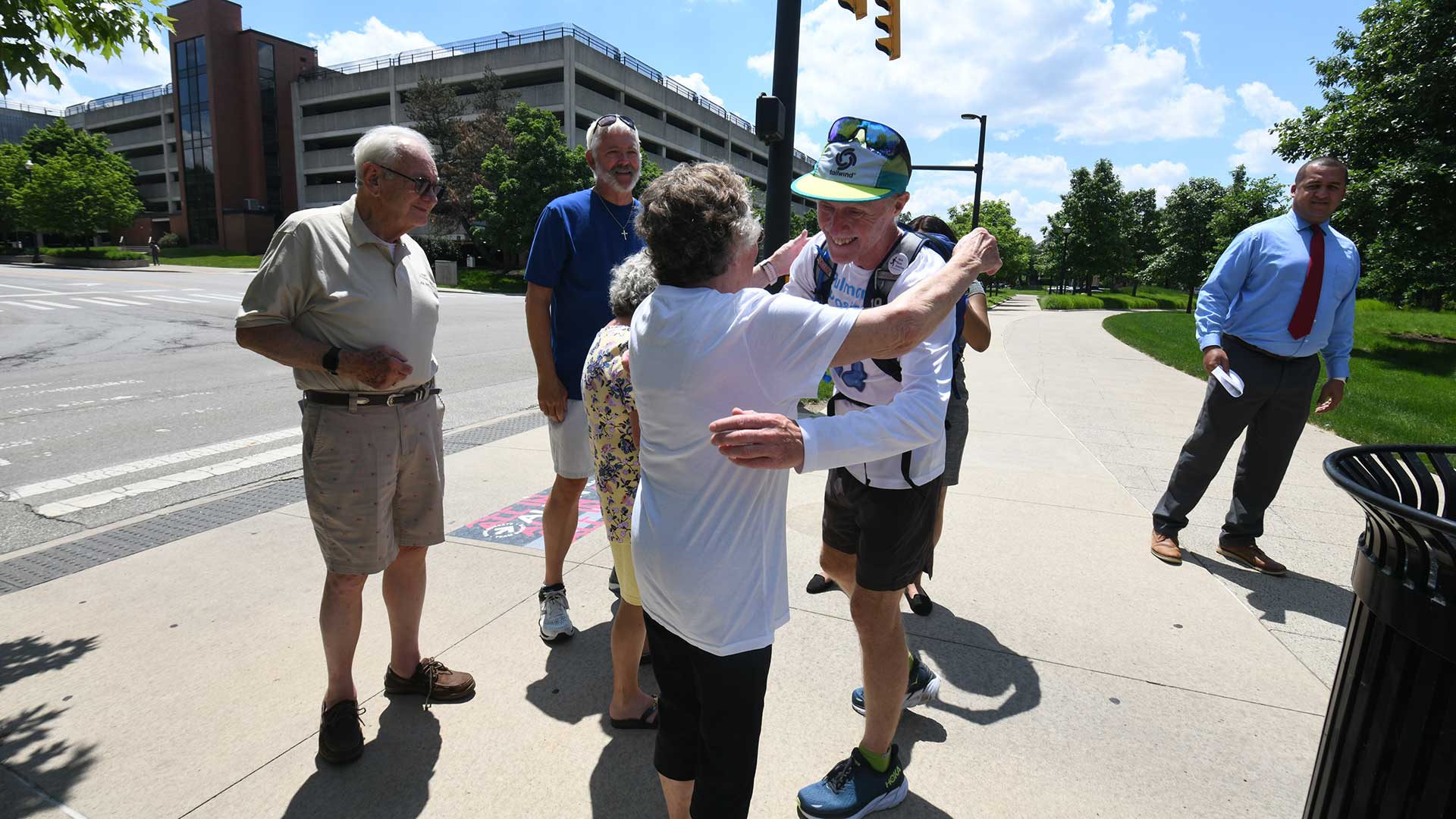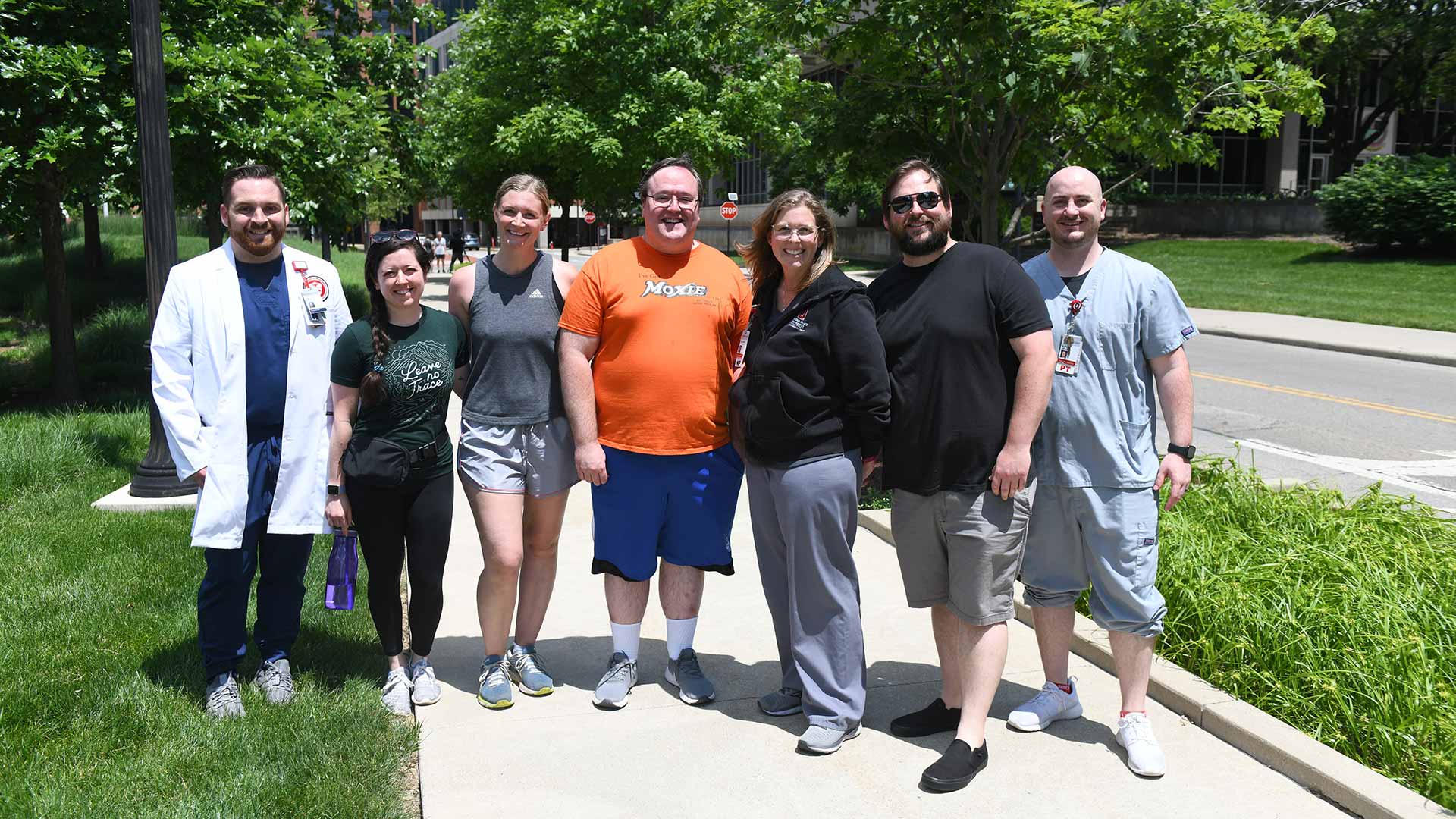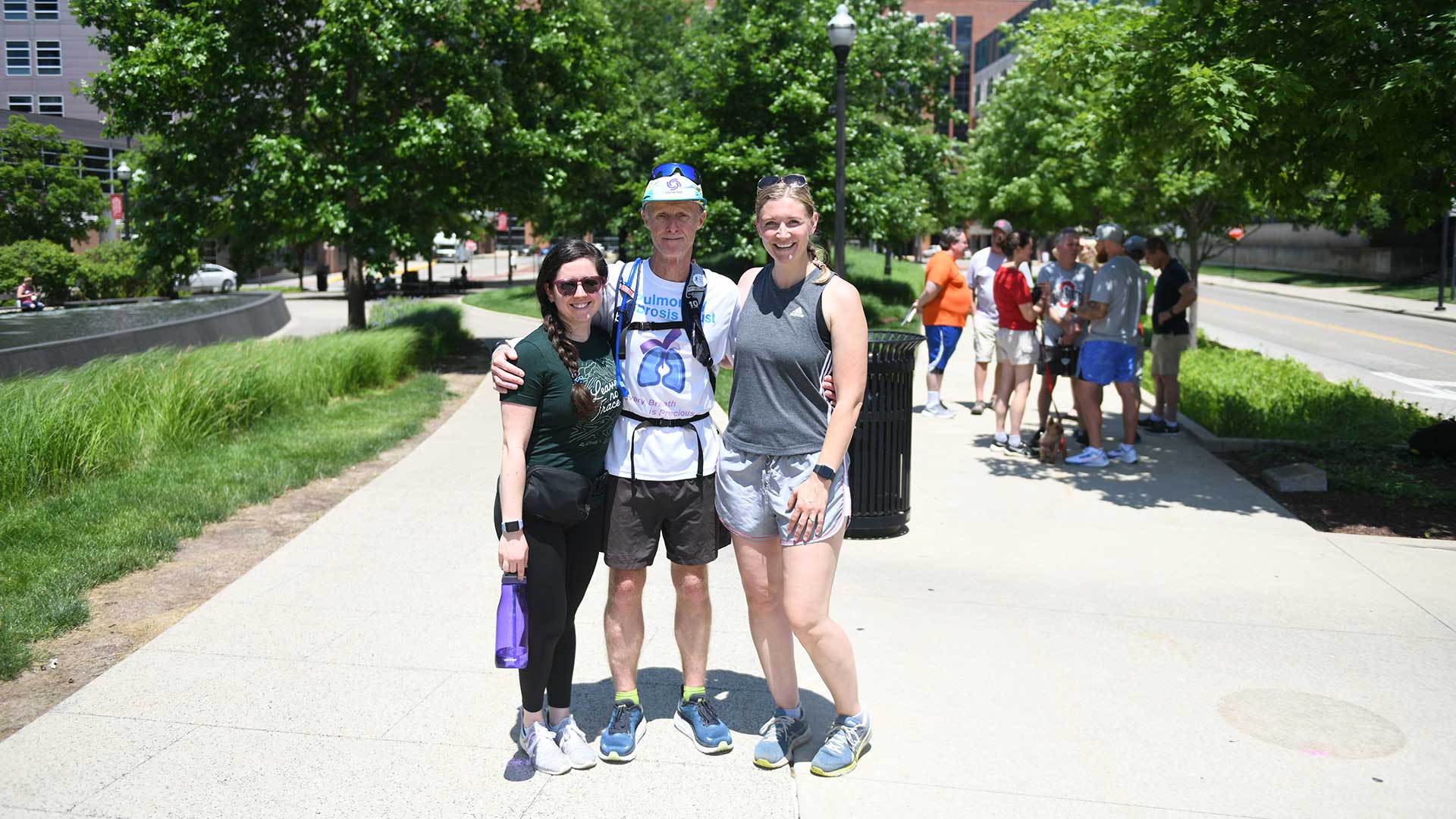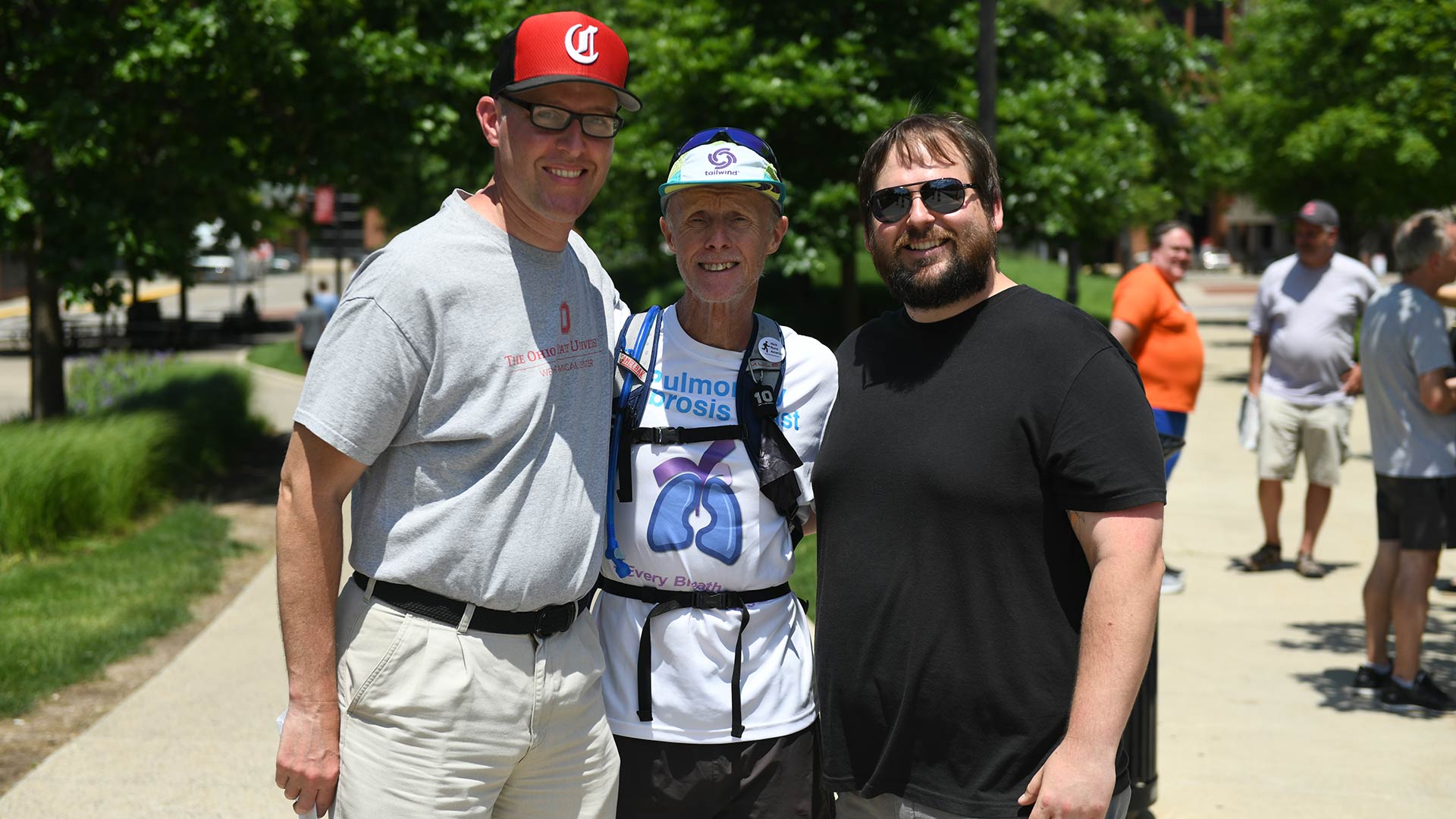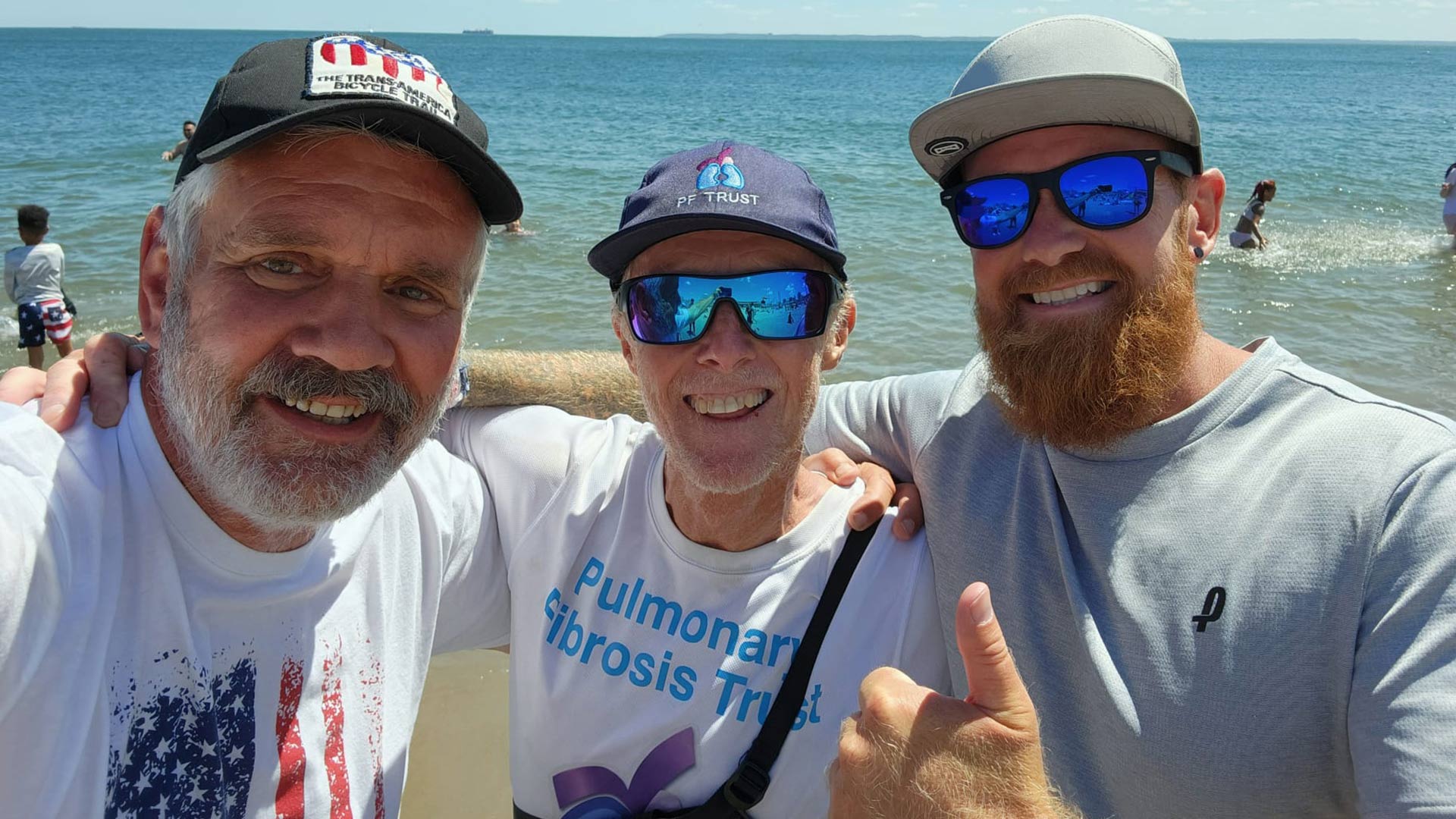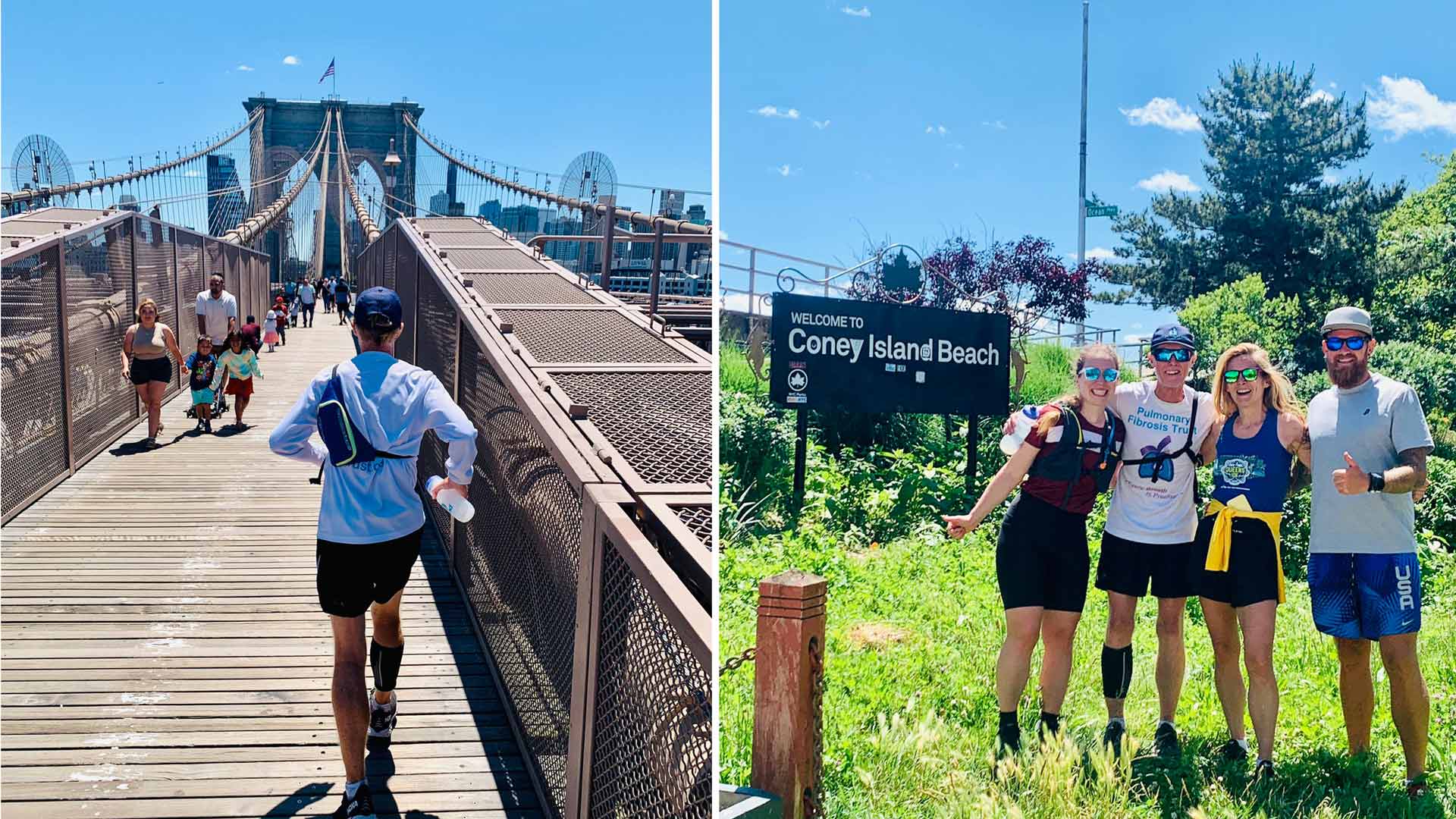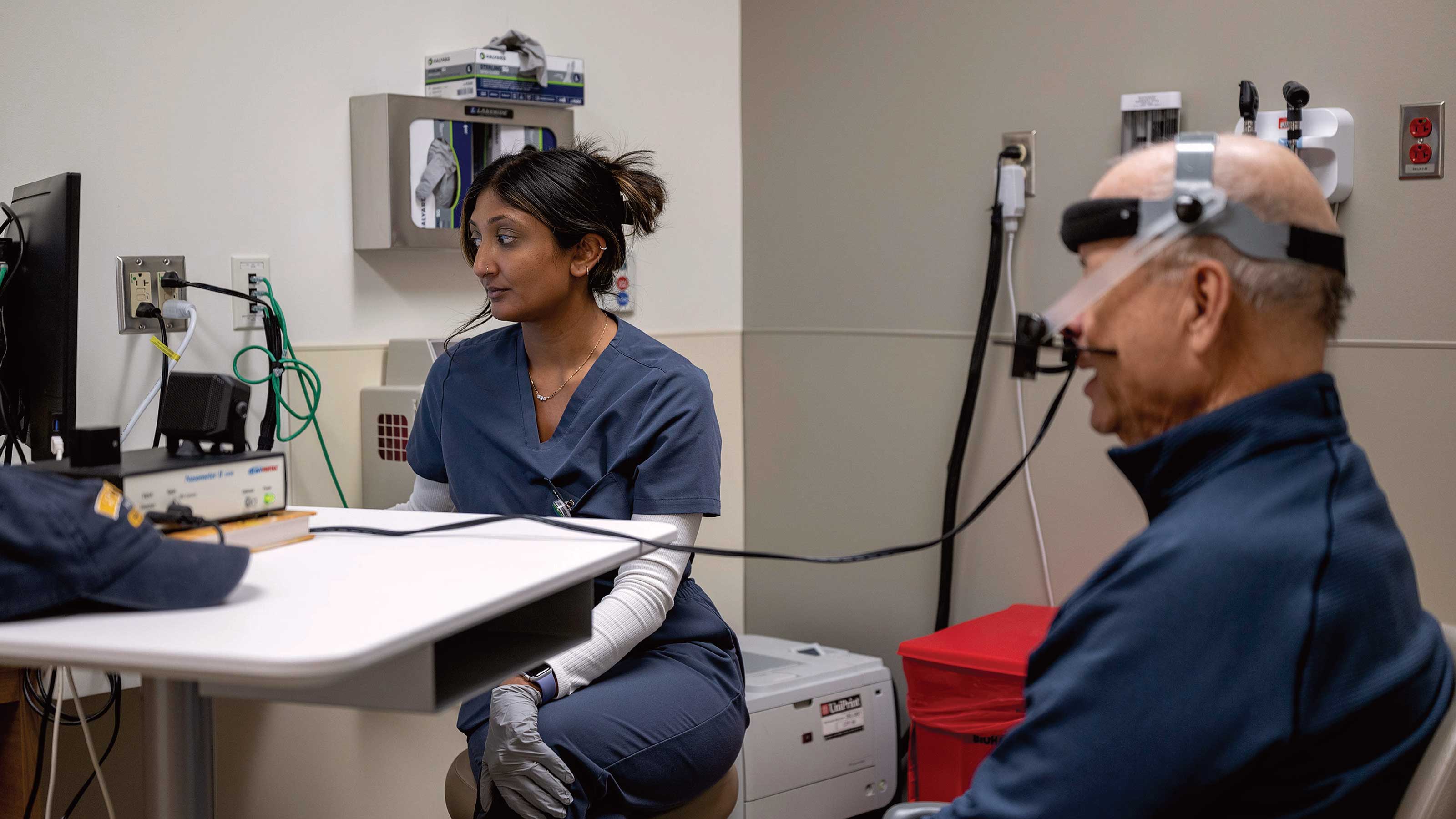Ultramarathon runner picks up cross-country journey in Ohio, five years after near-death collision
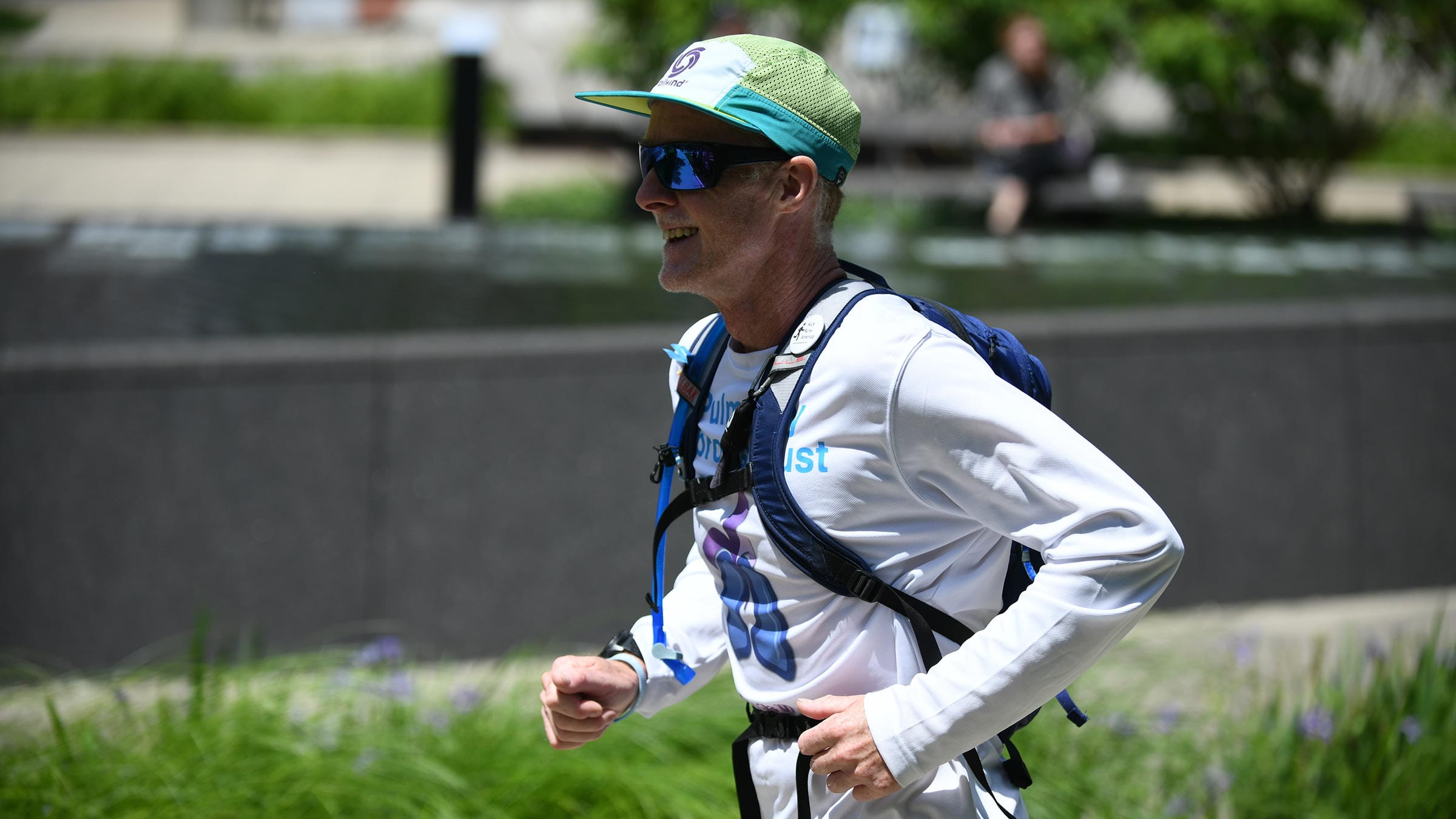
Nick Ashill had been running across the United States for 81 days, starting before dawn in May of 2017 at the Pacific Ocean, at a pier near Los Angeles.
Just a few states away from his goal of reaching the sands of Coney Island, New York, a pickup truck veered to the side of the road and hit Ashill, who leapt over a guardrail in an attempt to save his life. The truck driver never stopped, leaving Ashill in a ditch on a rural highway outside of Columbus, Ohio.
He could see bones jutting out of his left leg that had propelled him over 2,000 miles. He could see the wide sky above as car after car sped by, no one noticing him.
When a rescue crew found him nearly an hour later, he was taken by helicopter to The Ohio State University Wexner Medical Center where he would begin an even longer journey than the cross-country trek he set out to accomplish.
Over five years, he would relearn to stand, then walk, then run, without falling. A doctor had cautioned him he might never run again, but try telling that to a man who set out to run across America and had come close to finishing.
Ashill believed he would complete the run. The accident on Aug. 2, 2017, his many injuries and surgeries — a shattered pelvis, multiple fractures in his legs, bone fragments and the threat of possibly having to amputate his left leg — all of that was just part of what he viewed as a temporary delay.
“I had a completely false sense of reality,” Ashill says.
He figured he’d be in a hospital a few weeks, maybe a month, and then could restart the run across America.
“At the time, that was the headspace I was in,” he says. “Even though I had this huge will, a yearning to go back and finish it, my body wasn’t ready.”
Five years later, it was. On June 12, 2022, he dipped his blistered feet into the cool Atlantic Ocean at Coney Island, the feet that had carried him through 19 days of running 607 miles. He had just reached the end of his run across America.
“I knew deep down for a long time that I was a very stubborn guy,” Ashill says.
It was that stubbornness that led him to restart the run across America a few weeks ago giving himself a chance to finally finish. During the last portion of the journey — across Ohio, Pennsylvania, New Jersey and New York — he, at times, doubted he would reach the end. There were days his body overheated, and other days when it was just climb, climb, climb through the Pennsylvania mountains.
“It’s taken a couple of days to really sink in that it has really finished,” he says.
On Memorial Day, 2022, Ashill had stepped back on his running path right where he left off nearly five years earlier, by the ditch on U.S. Route 40 in Madison County, about 30 miles west of Columbus. He made a brief stop at The Ohio State University Wexner Medical Center, where a cheering crowd of doctors, nurses, physical therapists and other staff greeted their former patient, in amazement. It was overwhelming for Ashill, 57, to see everyone all at once, each of them so important to his recovery.
“It’s been a huge awakening for me,” Ashill says. “I want to thank everybody who has helped me get there. As human beings, we forget about the importance of kindness and that kindness is there every single day.”
One foot in front of the other
An ultramarathon runner originally from Wales in the United Kingdom, Ashill was living in the United Arab Emirates and working as a professor of marketing when he began the trek across America. The UAE, being so much smaller than the United States, wouldn’t have been enough of a challenge to run across. Plus, Ashill had always been fascinated with Route 66, but rather than drive it, why not run it? And while he ran, he wanted to raise money and awareness for pulmonary fibrosis, the incurable lung disease that claimed his mother two years earlier.
But then came the accident that abruptly ended his run. For the first five months after, Ashill had a series of surgeries at the Ohio State Wexner Medical Center, and in that time he had to learn to walk again.
“There were so many injuries and so much work to do, it was a process,” says JD Johnston, DPT, a physical therapist who began working with Ashill within days of the accident.
After two months, Ashill reached a milestone: He could stand up. The next goal was walking. Ashill walked first by holding parallel bars, then with a walker, then crutches, then with a cane, then nothing but his arms and newly reconstructed legs. It took about three months for him to get to that point.
“I think the pace of his progress was the biggest challenge and having patience through that process,” Dr. Johnston says. “But the overarching positivity he had is part of the reason he’s been so successful.” In late December 2017, five months after the accident, Ashill was able to fly home. He returned in 2018 to the Ohio State Wexner Medical Center and then again in 2019 for additional surgeries.
“I’m amazed he’s not in a wheelchair,” says Roman Skoracki, MD, a clinical professor of Plastic and Reconstructive Surgery in the Ohio State College of Medicine who performed three of the 11 reconstructive surgeries Ashill had while at Ohio State. “The fact that he’s alive is a complete miracle.”
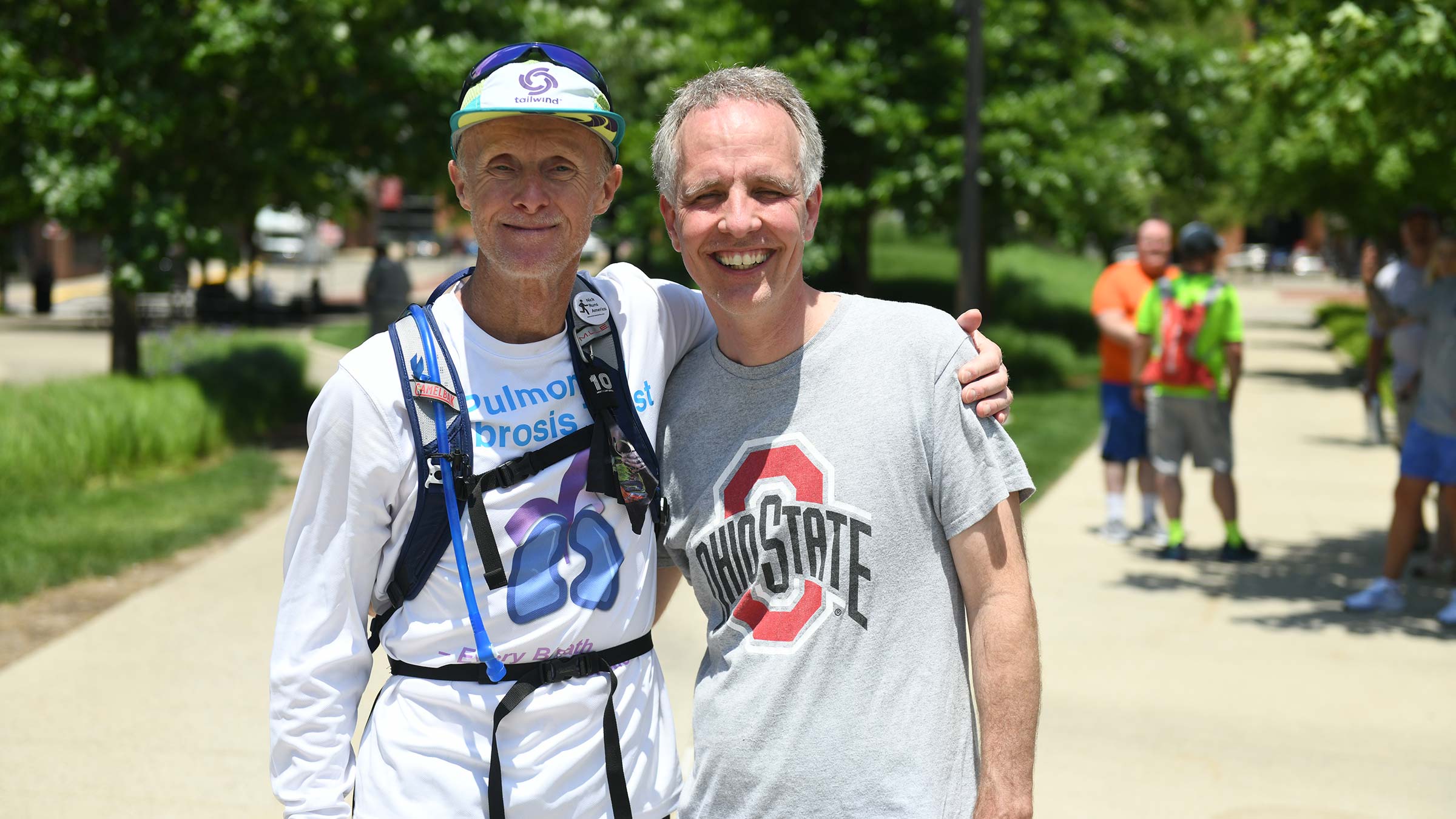
Back on the path
On Memorial Day, Ashill started the first of what he expects will be about 18 days of running across America. Logging about 40 miles a day, he hopes to touch the sand of Coney Island around June 17, having completed the 573 miles he had left when the pickup truck hit him.
“I think it’s going to take a couple of days to get into that mental frame of day after day of running,” he says. “I’m definitely not in it yet.”
Still, he says he feels confident that this time he’ll reach New York.
“I might hold the world record for the longest time it takes to run across America,” Ashill says in jest about the cross-country challenge he started five years earlier.
Since then, he’s had time to train. Ashill now lives in New Zealand, where he ran 100 miles in one day at a New Zealand ultramarathon last fall. It took 19 hours and 15 minutes with only brief stops for food and bathroom breaks.
“I was pretty tired at the end of it,” he says, which feels like a major understatement to anyone who doesn’t run for hours on end.
Keeping his eyes on the road
Despite surgery after surgery and many weeks of physical therapy, Ashill seemed to view it all as a temporary setback, Dr. Skoracki says. “I don’t think the injuries defined him in any way.”
To show his admiration for Ashill’s resilient spirit, Dr. Skoracki ran alongside him for a couple of miles on Memorial Day.
“Everybody’s rooting for him,” he says. “We’re all so proud to have had a tiny part in his recovery.”
Through the many challenging stages of learning to walk again, it would have been easy to become cynical or interpret the accident as a sign that maybe it was time to give up running and try a new sport. He could bike to the finish line, after all.
Not Ashill.
Sure, he’s had days when he’s given into despair that would be inevitable for a runner stuck in a hospital bed and resentment for the driver of the truck who hit him, then left the scene, and has never been identified. Those days didn’t last.
Alison Carlozzo, DPT, a physical therapist who helped Ashill strengthen his legs after the accident, stopped by the medical center on Memorial Day to cheer Ashill on. She wanted to show support for the former patient she’ll never forget.
“I always knew he was going to be able to get back to doing it,” Dr. Carlozzo says. “I didn’t know how long it was going to take, but there was no doubt in my mind.”
As a patient, Ashill always did the exercises in physical therapy and then did extra in his hospital room. “He is one of the most motivated patients I have ever had,” she says.
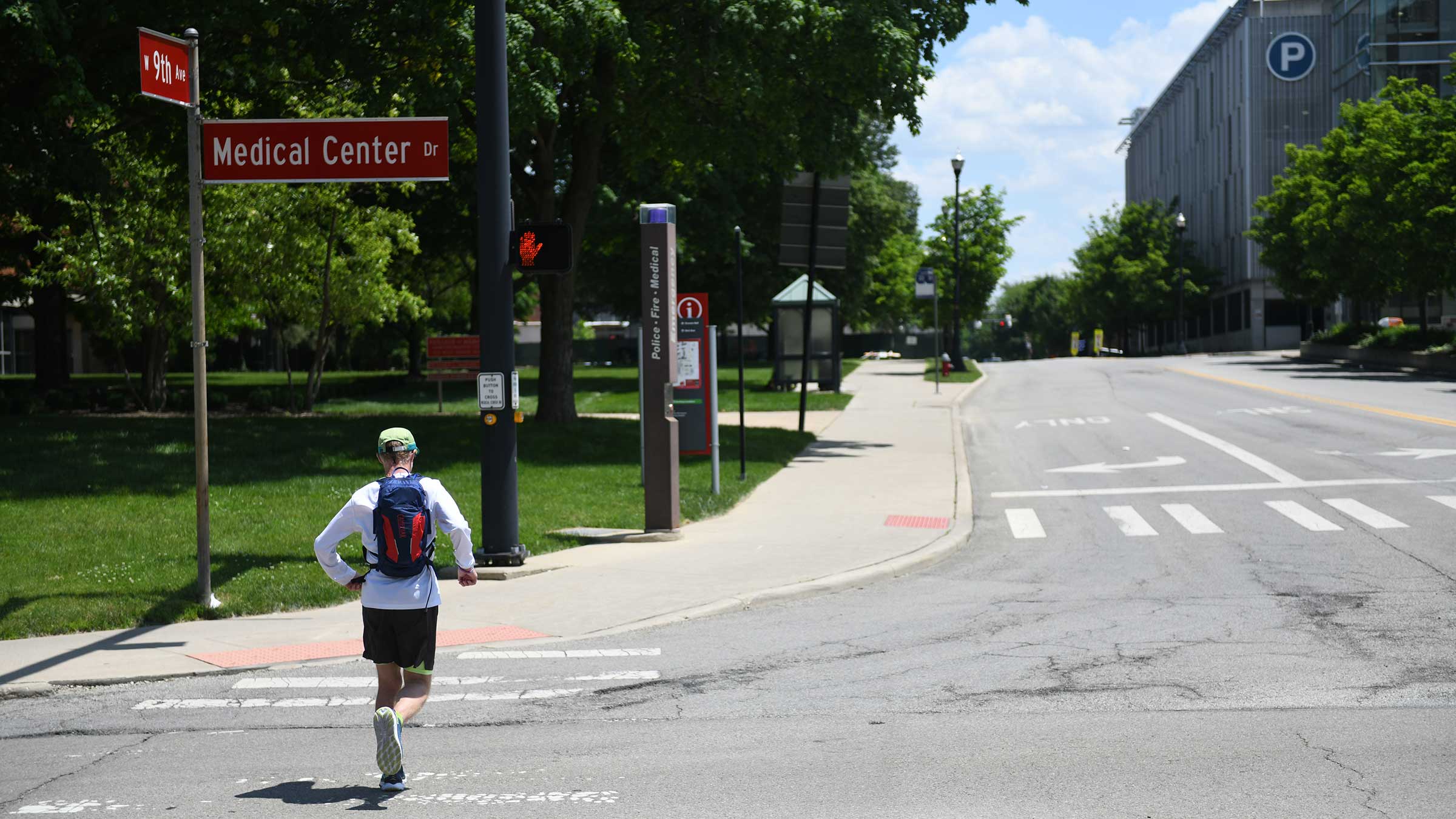
Resuming the run
The hurdles Ashill faced in his recovery weren’t all physical. For years, he kept replaying the accident in his mind, coming up with different outcomes that would have kept him from encountering the truck at the exact moment he did. If he’d started the run 10 minutes sooner or 10 minutes later, or if he’d spent more time on a bathroom or food break, he may not have met up with the truck. And then maybe he wouldn’t have dragged his wife and two daughters through the ordeal.
Those wounds, all invisible, have slowly begun to heal, and on Memorial Day, he confidently planted his feet on the spot where he was hit and, alongside a group of local runners, took off again.
Right: Two women members of a Brooklyn running club joined up with Nick Ashill and support crew member Paul Wheeler for the last six miles of the run to Coney Island.

We're driving breakthrough health care solutions to improve people’s lives
The Ohio State University Wexner Medical Center is continuously setting the standard for world-class care.
Learn more


